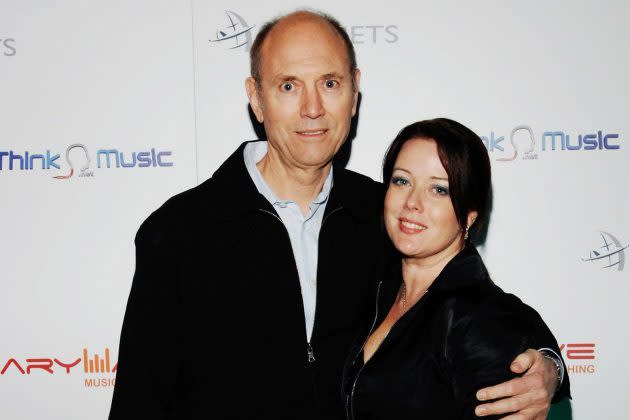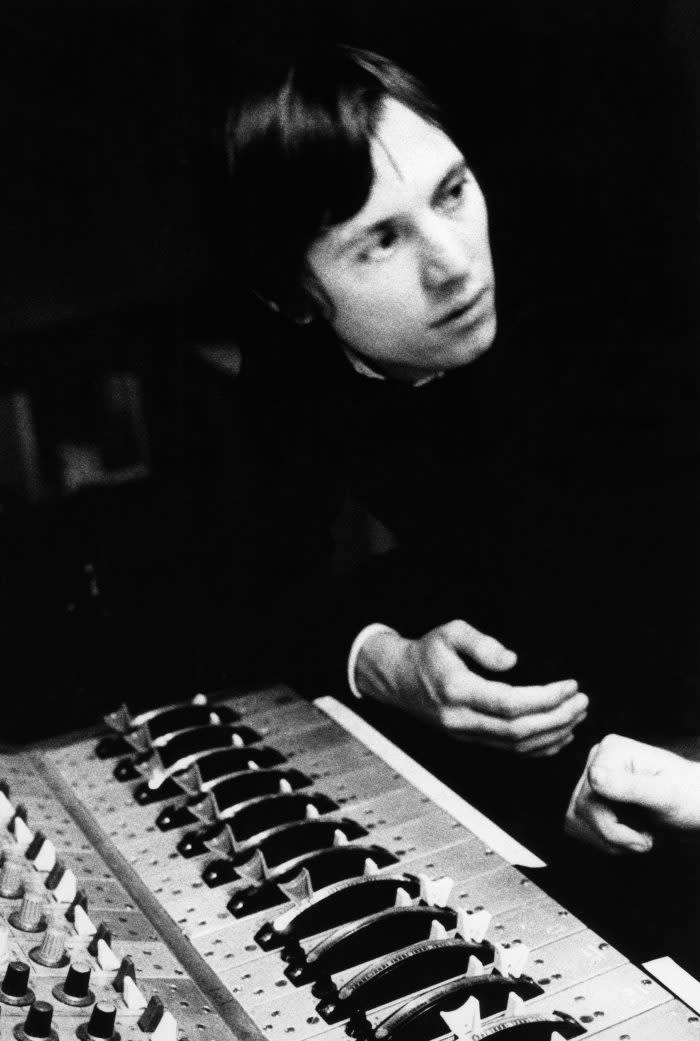Sandy Roberton, 1970s British Record Producer Who Switched Careers to Manage Producers, Dies
- Oops!Something went wrong.Please try again later.
- Oops!Something went wrong.Please try again later.
- Oops!Something went wrong.Please try again later.

Sandy Roberton, a producer and manager who worked with artists ranging from Steeleye Span in the early 1970s to the Matrix in the 2000s, died Monday in a hospital in London, colleagues report.
After a successful career producing records and managing artists in London in the ’70s, the Scottish-born Roberton moved to Los Angeles in the mid-1980s, where he had based his Worlds End Management Company for nearly four decades. The company has continued to the present day and currently represents producers and mixers including Stephen Lipson, Larry Klein, Brad Wood, Stephen Hague, Ted Hutt and many others.
In the mid-’60s, he was part of the duo Rick and Sandy, and released solo singles under the names of Sandy and later Lucien Alexander, before moving behind the scenes as a producer for acts like John Martyn, Iain Matthews, the Chocolate Watch Band, Decameron and others. He produced the first three albums for the folk-rock band Steeleye Span.
But in his subsequent time in Los Angeles, his company made its name representing successful producers like the Matrix, the collective made up of Lauren Christy, Graham Edwards and Scott Spock that hit it big producing Avril Lavigne’s debut album in 2002, going on to work with artists such as Britney Spears, Shakira, Korn and Liz Phair.
Christy (pictured above with Roberton, attending Primary Wave Music Publishing’s pre-Grammy party in 2009) told Variety how their former manager was responsible for much of the Matrix’s success.
“Graham and I were saddened to learn of the death” of Roberton, Christy said — and “shocked, too, because if you knew Sandy, you know he never stopped working. Ill health wasn’t on his schedule!
“Sandy had a long and successful career in production and management before he suggested Graham and I (who were both nearing the end of our careers as recording artists) team up with Scott and form a songwriting and production team. The idea changed all of our lives. He worked us nonstop: sending artist after artist to our dingy studio in Culver City until finally he suggested we try our luck writing a song for Christina Aguilera’s Christmas album. That was our first cut, and the rest is pop history.
“Sandy’s passion for music and his endless hours of working connections and wheeling deals for his clients is unparalleled in the industry. The Matrix owes much of its success to him. He has been a pioneering champion for so many people who have written and produced many of the best songs of the past four decades. Thank you, Sandy, for your love of music and the people who create it. Godspeed.”

Redferns
Roberton actually started Worlds End in Chelsea, London in 1980, and the company billed itself as “probably the first full-service company to ever solely represent producers, mixers and engineers.”
Roberton was raised in Kenya and moved into the music business shortly after his family moved to London when he was in his mid-teens. He joined up with Tom Springfield, the brother of Dusty, to form Tom and Dusty, which recorded singles for Decca and Mercury. As a subsequent solo artist, he released a cover of Neil Diamond’s “Solitary Man” for Columbia, as Sandy, and Bob Dylan’s “Baby, You’ve Been on My Mind” as Lucien Alexander for Polydor.
After wrapping up his brief recording career, he moved into the publishing side of the business, representing classic blues artists as he worked for Chess Records’ publishing companies in Europe as well as Lowery Music and Blue Horizon Records. Later he formed his own companies, September Productions and Rockburgh Records, where he worked with, in addition to the aforementioned British artists, acts like Gay and Terry Woods, Jo Jo Zep & The Falcons, the Woods Band, Wilco Johnson, Finch, the Liverpool Scene, Robin Scott, Shelagh McDonald, Keith Christmas, Harold McNair and Tim Hart & Maddy Prior.
Of the switch from production to management, he said in a 1978 interview, “I felt I was getting no recognition. I know that sounds bigheaded but I was getting a lot of work offered to me that involved artists that even I had never heard of. I’d get three-quarters of my way through a record into which I was putting a lot of love and then I’d suddenly realize that after the record company had sent out the promotional discs, nothing else was going to be heard of that record again. In the end, things just didn’t seem worth it. And though I was getting well paid, I just got more and more depressed and felt that I was becoming the backroom boys’ backroom boy.”
In 2013, Goldmine magazine said, “Talk about the behind-the-scenes wonders of British folk rock as it developed out of the 1960s and into a new age of world domination, and three names rise above all the others operating at that time” — Joe Boyd, Austin John Marshall and Roberton.
“In the mainstream now, most producers are the writers of the songs, certainly in the pop world,” he told Goldmine. “I think the best producers are those who don’t necessarily write the material, but are able to set a direction and arrange an artist’s music to bring out the best in the songs and create a mood.”
Roberton’s daughter Niki Roberton was a co-founder of Iamsound Records, a label whose releases included early work by Florence and the Machine, Lord Huron and Nikki Lane.
Best of Variety
Sign up for Variety’s Newsletter. For the latest news, follow us on Facebook, Twitter, and Instagram.

